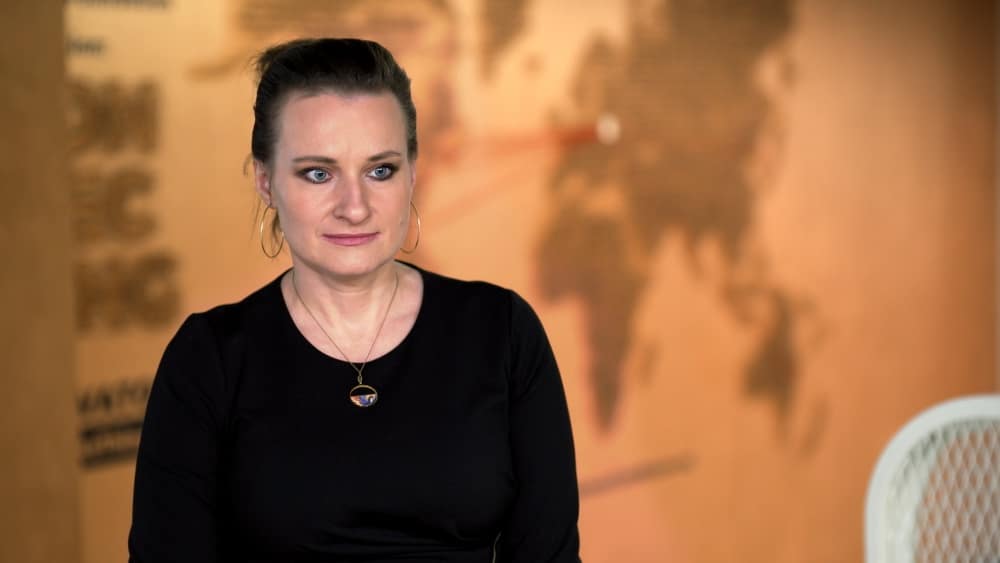The investment knowledge of Poles is growing, but we are still lagging behind other societies in this respect. Several years of high inflation have led to an increased interest in money value protection topics. However, Poles still invest very conservatively, opting for the safest funds or minimizing risk and potential profits on deposits. They often also fall into the trap of an exaggerated perception of their own investment skills after early successes.
“The level of knowledge of Polish investors is not impressive, although it must be admitted that recent years have raised this level, which is important. Recent experiences related to high inflation and the situation beyond the eastern border have made us more sensitive to financial issues,” says Dr. hab Katarzyna Sekścińska, a business psychologist from the University of Warsaw. “We have become more risk averse, we try to limit this risk, but at the same time we have become more interested in limiting the risk of losing value in connection with inflation, and therefore we have become a bit more open to investments, but safe ones.”
In January 2024, Ipsos research company, commissioned by the investment platform Portu, conducted a survey on which the Index of Investment Competence of Poles was based. The same study was conducted in the Czech Republic and Slovakia, while in Poland it was conducted for the first time. The survey asked about self-assessment of one’s own experiences and investment skills and asked specific questions about saving and investing knowledge, including the effects of inflation on the value of money, the relationship between profit and risk, the impact of exchange rates, the compound interest mechanism, diversification and mathematical issues.
In total, there were 10 questions. Poles answered 42% correctly. This result was weaker than that achieved by Czechs and Slovaks. The Czechs demonstrated the highest level of knowledge, Slovaks were slightly better than Poles, although not at all questions. We fared relatively well with mathematical profile questions (percentage calculations, compound interest mechanism) and a question about taxes (tax settlement of securities). The weakest results were in the questions about the impact of inflation, the difference between investing and saving, and the question about insurance against stock market declines.
“Often our subjectively perceived investment experiences and beliefs about our own skills do not go hand in hand with real knowledge. These are novice effects: I start entering the stock exchange, I managed to achieve something a few times, so I declare that I am a super experienced person, I have super knowledge, I start investing even more risky,” points out Dr. hab Katarzyna Sekścińska. “Then it turns out that it doesn’t work that way, that I was lucky and that it wasn’t dictated by the fact that I have a real influence on the market or some amazing knowledge, it was just luck. People who are very experienced do not declare being very experienced, probably because they are aware of how much they still don’t know. They have more real experiences, both successes and failures, so they are also more aware that not everything depends on me, and on the other hand they are aware of how many nuances of the market are still beyond their knowledge.”
The survey showed that people who perceive themselves as “very experienced” investors (18% of respondents), obtained a percentage of correct answers slightly higher than those who described themselves as “completely inexperienced” (16%). While the value of the index for the entire group of respondents (1009 people) was set at 100, the two extreme groups scored 89.6 and 79.5, respectively. The “not very experienced” showed much better results (110.2), and the best results were achieved by the “rather experienced” (121.4). In total, almost 40% of respondents considered themselves experienced or very experienced investors, while other studies show that 6-7% of the population invests in stocks, bonds or ETFs.
In the era of rising inflation, which rapidly accelerated between April 2021 and February 2023, reaching an annual pace of 18.4%, the highest since 1997, Poles began to look for opportunities to protect the value of their savings. They mainly looked for them in bank deposits and savings accounts, which at the peak offered a maximum of 10% per annum, and that for a limited period and often after fulfilling additional conditions, such as opening or having a savings and settlement account in a given bank, depositing new funds or making a certain number of transactions for a certain amount.
“Still 10% of Poles say: I keep money in cash, because – pay attention – then the bank will not take it from me. And this is the first false belief that should not take place. The second is that if I have money in cash, they do not lose value,” says the business psychologist from the University of Warsaw. “These two absolutely misconceptions, it should be emphasized, we still have in our heads and they cause us not to be able to go further in investment instruments. We also have low faith in ourselves and a high level of risk aversion, and as a result, it is very difficult for us to go beyond a certain investment threshold. It is difficult for us to decide to invest in TFI or stocks, because it seems to us that the risk is too great, that we do not have enough capital, or finally we do not feel confident. Regardless of inflation, from recent years, what we have in our heads and hearts needs to be worked through more than objective indicators.”
